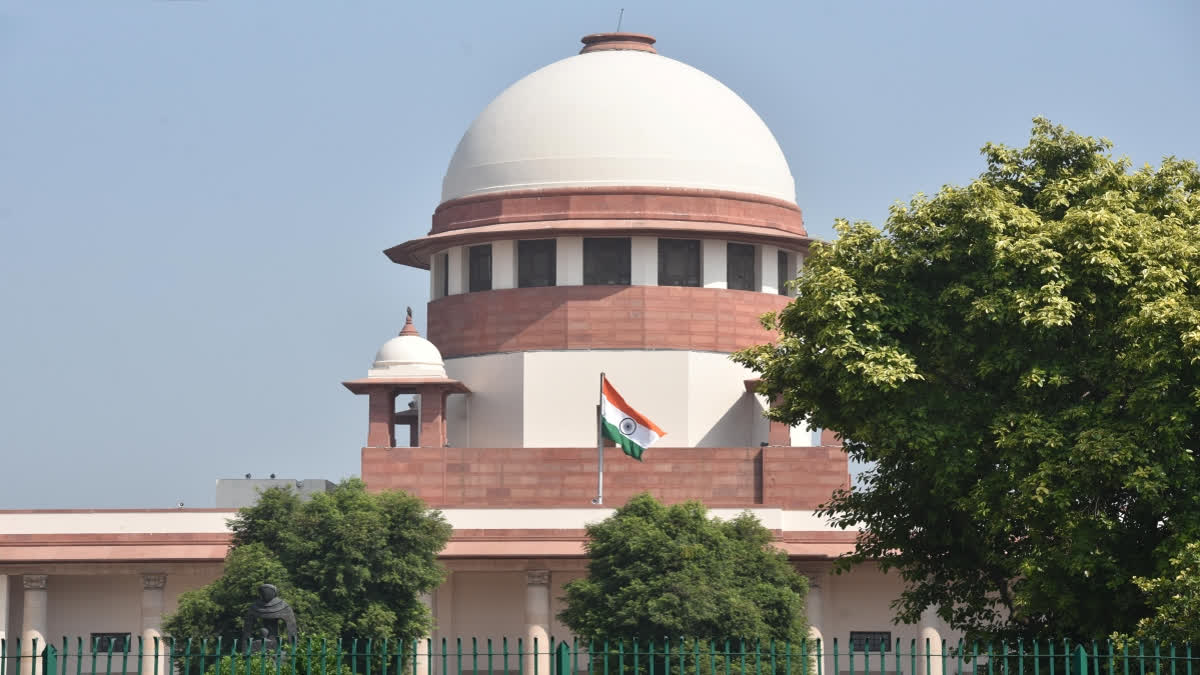New Delhi: The Supreme Court on Tuesday quashed a decision of the West Bengal authorities to cancel a contract for maintaining two underpasses in Kolkata to a private party without assigning any reason. A bench comprising Chief Justice D Y Chandrachud and Justices JB Pardiwala and Manoj Misra said: “We are of the considered opinion that this is the classic textbook case of arbitrariness….”.
The apex court also set aside the judgment of the Calcutta High Court which upheld the cancellation of the contract. The detailed judgment will be uploaded later in the day.
The bench cited that the decision to cancel the contract was taken purportedly at the behest of a minister. In May this year, the apex court had reserved the judgment in the matter. While reserving the judgment, the bench had said that contracts awarded to private parties should not be cancelled without assigning reasons.
The top court had observed that private parties, who make investments after bagging a contract, have reasonable expectations of getting a return. In May 2023, the High Court upheld the verdict of a single-judge bench which had approved the cancellation of the contract awarded to a firm headed by Subodh Kumar Singh Rathour. In February 2023, the contract was terminated by the Kolkata Metropolitan Development Authority.
The bench, in its 84-page judgment, said: "We are of the considered opinion that the litigation at hand is nothing but a classic textbook case of an arbitrary exercise of powers by the respondent in cancelling the tender that was issued in favour of the appellant and that too at the behest of none other than the concerned Minister-In-Charge and thereby rendering the Notice of Cancellation dated 07.02.2023 illegal".
The top court said public tenders are a cornerstone of governmental procurement processes, ensuring transparency, competition, and fairness in the allocation of public resources.
"It emanates from the Doctrine of Public Trust which lays down that all natural resources and public use amenities & structures are intended for the benefit and enjoyment of the public. The State is not the absolute owner of such resources and rather owns it in trust and as such it cannot utilise these resources as it pleases," observed the bench.
Justice Pardiwala said as a trustee of the public resources, the state owes i) a duty to ensure that community resources are put to fair and proper use that enures to the benefit of the public as well as ii) an obligation to not indulge in any favouritism or discrimination with these resources.
He said the state with whatever free play it has in its joints decides to award a contract, to hold up the matter or to interfere with the same should be accompanied by a careful consideration of the harm to public interest.
The bench said public tenders are designed to provide a level playing field for all potential bidders, fostering an environment where competition thrives, and the best value is obtained for public funds. The bench said the integrity of this process ensures that public projects and services are delivered efficiently and effectively, benefiting society at large and the principles of transparency and fairness embedded in public tender processes also help to prevent corruption and misuse of public resources.
"We do not say for a moment that the State has no power to alter or cancel a contract that it has entered into. However, if the State deems it necessary to alter or cancel a contract on the ground of public interest or change in policy then such considerations must be bona-fide and should be earnestly reflected in the decision-making process and also in the final decision itself," said the bench.




